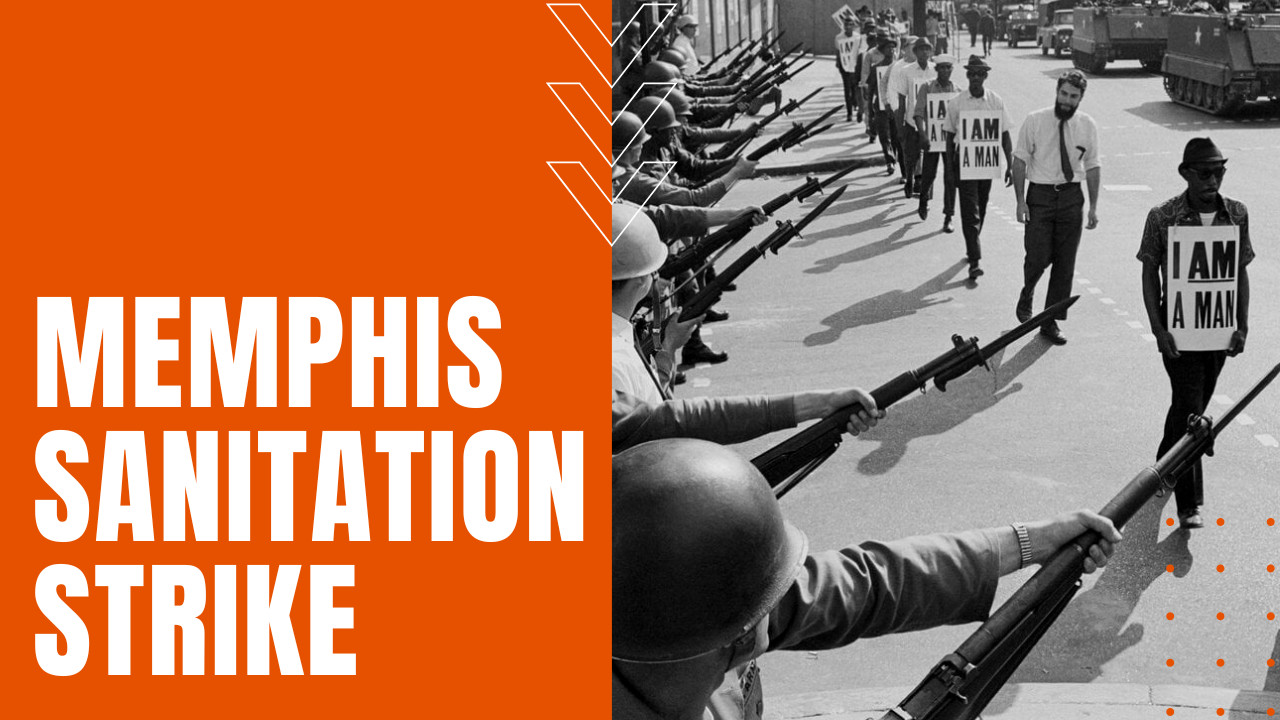Memphis Sanitation Strike

Working long hours in every kind of weather, all for a lowly 65 cents an hour or $5.62 in today’s currency, when two Memphis sanitation workers were crushed to death by a faulty garbage truck compactor, 1,300 Memphis sanitation workers walked off their jobs when city officials refused to provide compensation to the deceased worker’s families.
Hardline Mayor
On February 23rd, 1968, after Memphis Mayor Henry Loeb refused all concessions to the striking workers, police assaulted peaceful protesters with tear gas, prompting Nashville professor and civil rights activist Reverend James Lawson to call on his friend Martin Luther King, Jr., with the hope of drawing attention to the striker’s plight.
Piggy Backs Poor People’s Campaign
Building on MLK’s Poor People’s Campaign, which advocated for underprivileged Americans, on March 18th of that same year, King addressed a crowd of some 25,000 people about the value and worth of labor by saying, “whenever you are engaged in work that serves humanity and is for the building of humanity, it has dignity, and it has worth.”
Outside Agitators
Ten days later, King returned to Memphis for another “I am a man” protest, which led to the death of an African American teenager when an outside group infiltrated the sanitation worker’s march. King would return to Memphis on April 3rd, delivering his “I’ve been to the Mountaintop” speech, which proved to be a tragic foreshadowing of his assassination the following day. Insert Kennedy’s announcement.
A Nation Mourns
While MLK’s assassination sunk a nation into deep mourning and widespread civil unrest in major American cities, it also overshadowed the Memphis sanitation workers strike, prompting King’s still-grieving widow, Coretta Scott King to return to Memphis to spotlight the cause of underpaid sanitation workers.
LBJ Steps In
Following Coretta’s act of courageous solidarity, President Lyndon Baines Johnson sent his undersecretary of labor to Memphis to help mediate an equitable agreement. Two weeks later, Memphis leaders officially recognized the workers’ union, while granting generous pay raises for its members, making the Memphis Sanitation Workers Strike, a bittersweet milestone during the heated years of the civil rights movement.
